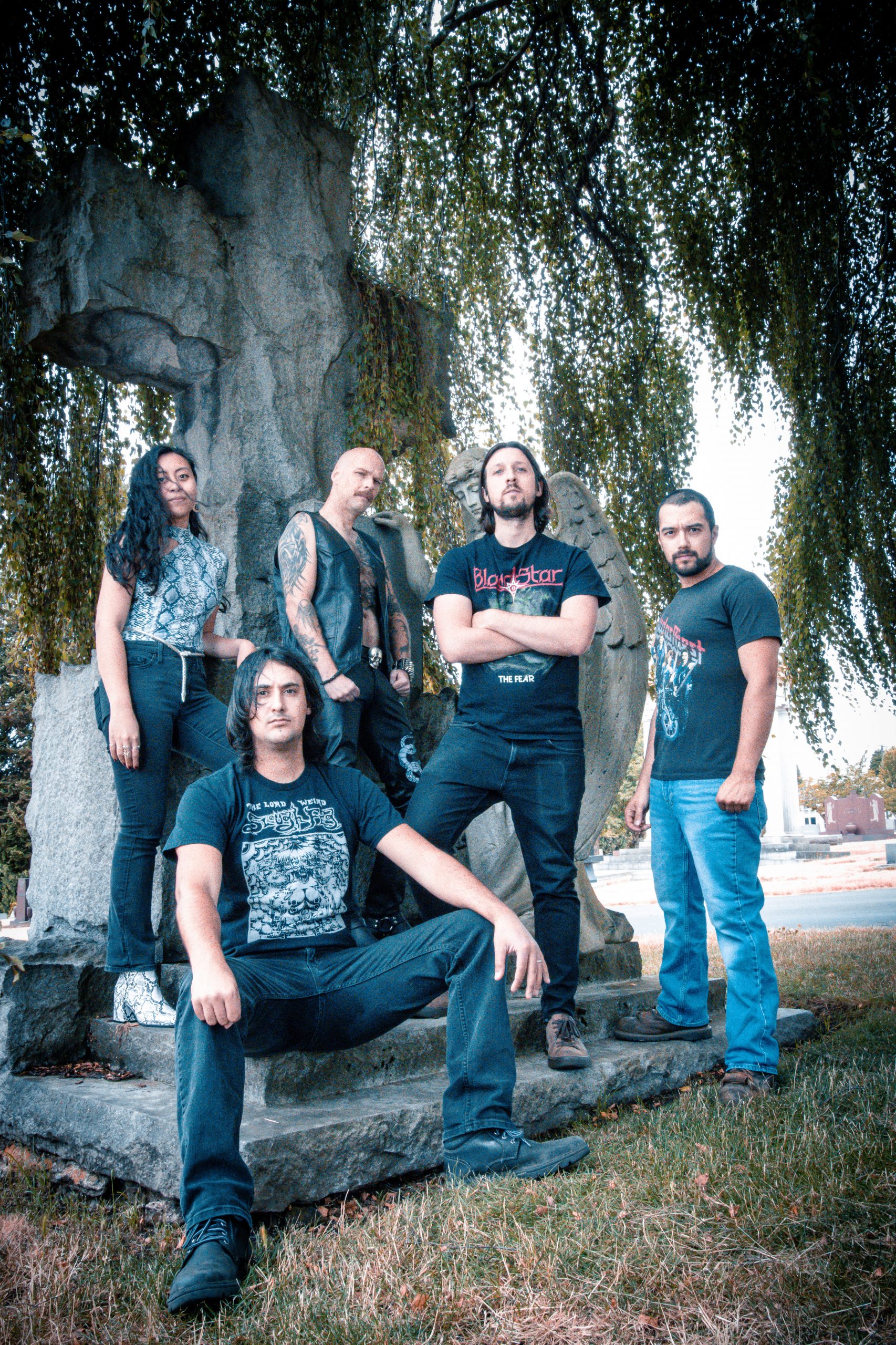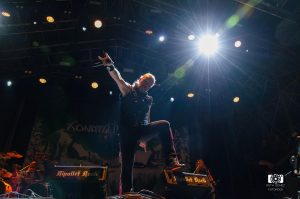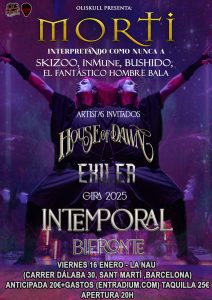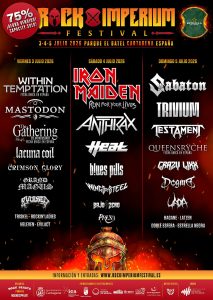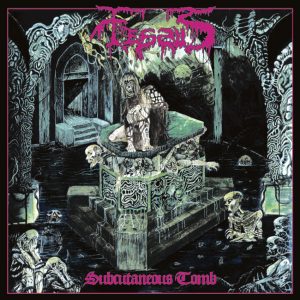SERPENT RIDER: Forging the Impossible: Ritual, Myth, and the Divine Fire of Heavy Metal
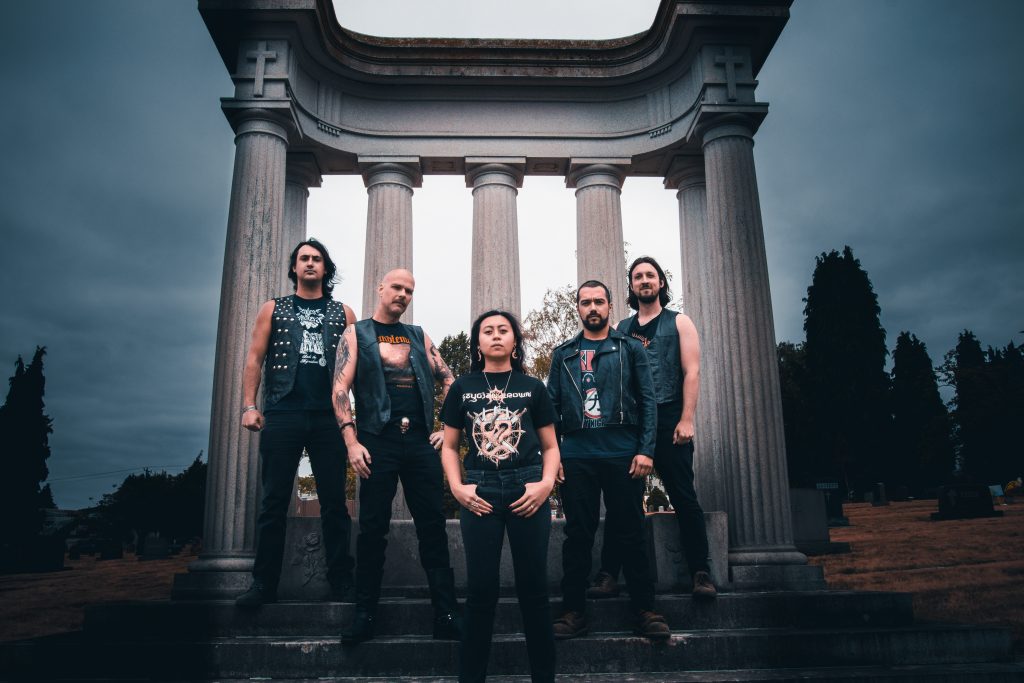
Serpent Rider’s latest release, The Ichor of Chimaera, is more than just an album—it’s a bold statement about transformation, mythology, and the power of heavy metal to shape reality. In this interview, we explore the band’s evolving identity, their deep-rooted admiration for Greek metal, and the primal energy that fuels their songwriting. From the cinematic influences behind their compositions to the near-spiritual devotion to their craft, Serpent Rider embodies the fusion of history, culture, and rebellion. They also confront the arrogance—and necessity—of self-deification in music, the reality of lineup changes, and their place in the ever-thriving underground metal scene.
-Thanks for your time! You’ve poured years of work into The Ichor of Chimaera. Now that it’s out in the wild, do you feel a sense of completion—or is there an itch that still hasn’t been scratched?
I feel good! I’m proud of the album and now (a couple weeks before release, in case this interview goes up later) the biggest itch is just waiting for other people to hear it. It’s hard spending so long on something and putting your heart into it and wanting to show the world but having to wait!
-Serpent Rider stands at an unusual cultural crossroads: an American band channeling the spirit of Greek mythology, with members from both the US and Greece. Does that dual identity create creative tension, or does it feel like a hidden strength? What do you think each culture brings to your sound and storytelling?
We actually don’t have any members anymore that are Greek- we did with the earlier years of the band but these days everyone’s rooted elsewhere, living in the USA. When we did though I can’t say that it felt particularly different than writing right now. The important thing is not your country of origin but your love for heavy metal, and that’s eternal and universal!
Where we do get some of that influence is from my love of Greek metal, and our other guitarist Paul’s love and interest in music from the Mediterranean, particularly classical Ottoman music. There’s a lot of easy melding between how I write rhythms and melodic sections and how Paul approaches lead guitar.
-Many bands wear their influences on their sleeves, but Serpent Rider distills them into something both ancient and unpredictable. If you had to describe your music as a lost relic from a forgotten era—something unearthed in an archaeological dig—what would it be, and why?
An unsheathed ceremonial sword, I suppose! Both beautiful and with a martial power to back that up. We’re a heavy metal band, after all!
-Your music has a raw, ritualistic quality, as if conjuring something beyond the physical world. Do you see Serpent Rider as just a band, or as part of something larger—a mythology of your own making?
I suppose I’d say that Serpent Rider fundamentally is an outlet to the most important creative needs that I have, and an external reflection of who I am both as a musician and as a fan of music. A deification of my own experience as someone that grew up steeped in hard rock and heavy metal, and as an adult obsessed with it, all distilled into a band and album!
-Your song structures and melodies tap into something deeply primal, even trance-inducing at times. Is there a particular non-metal musical tradition—folk, religious chants, classical—that has shaped your approach to composition in a way that fans might not expect?
This is one that varies a bit member by member. I take some influence from various forms of rock that are more or less far away from metal (obviously, something like UFO is a bit more direct, but something like Fairport Convention a bit less) as well as from film scores a la the compositions of Basil Poledouris and Howard Shore, Paul as I mentioned is a big fan of traditional Ottoman music, R. Villar has a very wide taste and outside of metal is into everything from classic rock to classical music to pop to musical theatre, and so it is for all of us. Inspiration shouldn’t be dogmatically limited to metal!
-The album title, The Ichor of Chimaera, suggests divine blood, monstrous transformation, and the impossible made real. How does that idea resonate with your own creative process? What, for you, is the «ichor» that fuels Serpent Rider?
I think that there is a certain arrogance in making music at all, let alone roping in other musicians, recording it, and then deciding it is worth sharing with the rest of the world. I think that we all grow up with the idea of rock stars and bands being an “other” and most of us don’t think as a kid admiring AC/DC or Iron Maiden that we will someday enter the same stage, even at a much-reduced level playing underground metal. Our coworkers at our day jobs are often shocked and intrigued at the idea of us playing in bands.
Of course as adults in the metal scene being in a band is very normal, and half the fucking fans in the genre are in a band- but for many of us, it is something of a deification of the self in a sense to decide that your own creative impulses are valid, that they are worth elevating, that they are worth pursuing, that they are worth sharing. I never as a kid or a teenager imagined that I would ever play an instrument, and when I started in college, I distinctly remember telling a friend that I could never be in a band because I wasn’t cut out for it. Not too long later I started Serpent Rider. In a very real sense, this album and our tours and festivals are for me the “impossible made real” as you put it.
-The underground US metal scene and the Greek metal scene have both fostered cult followings but in different ways. Do you feel like an outsider in both worlds, or do you see Serpent Rider as a bridge between them?
I feel like we are very at home with both. We are of course an American band but we’ve had deep ties with the Greek scene since the beginning, and of course we are signed to a Greek record label (No Remorse Records). My other band, Draghkar, is on legendary Greek underground label Nuclear Winter Records. We have many Greek friends, both bands and fans, and a deep admiration for the Greek metal scene. I don’t think the scene needs a “bridge” like us either- many American bands are worshipped in Greece, and many Greek bands worshipped in the USA! Greek festivals book American bands, and the two labels I’ve mentioned are far from the only international labels in the country. I’d be lying if I said that the worldwide metal scene has ties to and includes every country- plenty of great bands are very isolated by where they’re from- but I think that the relationship between Greek and American bands is deep, powerful, and goes back a very long time. Hail to Greece!
-In previous interviews, you’ve mentioned internal conflicts leading to lineup changes. How have these experiences shaped the band’s dynamics and creative output over the years?
It’s really led to me valuing the current lineup that we have in a way I don’t think I would have had the perspective to if I’d had the fortune to work with these wonderful people from day one. Each and every person in Serpent Rider is a top tier musician and a stupendous human being- easy to work with, easy to like, easy to spend time with. It makes touring painless, it makes band practice and gigging a genuine pleasure, and makes everyone comfortable enough to really push ourselves. It’s made us the best band we can be and I am extremely grateful for it and for my friends being a part of it with me.
-Looking ahead, what does the next chapter of Serpent Rider look like? Are there future concepts, experiments, or even non-musical ventures you’d like to explore?
We are going to keep going as we have been. I don’t want to give too much away! Expect more music in due time, more live appearances, and for us to keep growing as a band without sacrificing the passion for heavy metal and for cool riffs that have taken us this far.
-Thank you again for taking the time. If Serpent Rider could leave one scar on the landscape of heavy metal history—one indelible mark—what would you want it to be?
Other than our music, you mean? Ha! I’d just like to leave behind a lot of good memories and a legacy that people come back to whenever we’re gone. I think that’s every musician’s dream!
Thanks for the interview. I will leave off with a short playlist of music I listened to today. Hail and kill!
The Allman Brothers Band – Eat A Peach
Brats – 1980
Danzig – Thrall: Demonsweat Live
Dolmen Gate -Stygian Shores – Live At Up The Hammers
Ashbury – Endless Skies

